How “not-so-keen-to-listen” authorities punish a Dowa community
“All that authorities have been saying is ‘We’ve heard your water problems’, but never came back.”
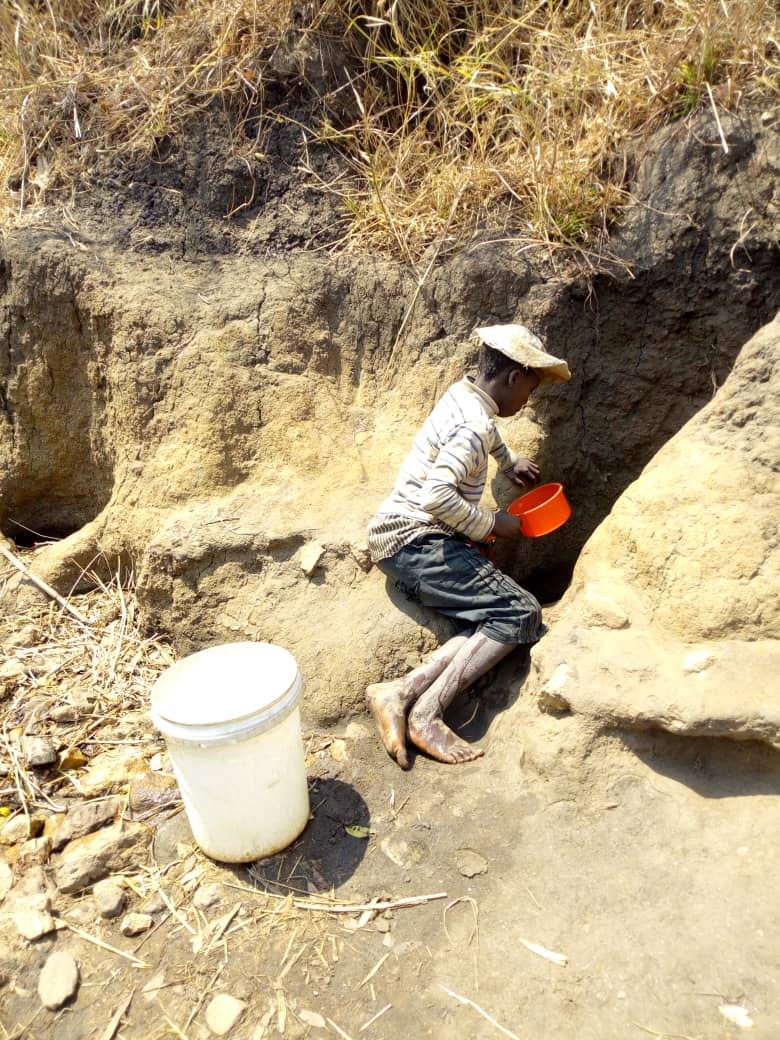
(A boy drawing water in one of the holes dug on a riverbank)
It’s hard to believe, but this is a hard cold fact that will certainly hit you hard like some sledgehammer.
Members of Kasangu Village in Traditional Authority Mkukula in Dowa district have been relying on water from holes gorged on the banks of river Mtofu for the past 56 years, all along with copying with all the troubles of living without running or safe water.
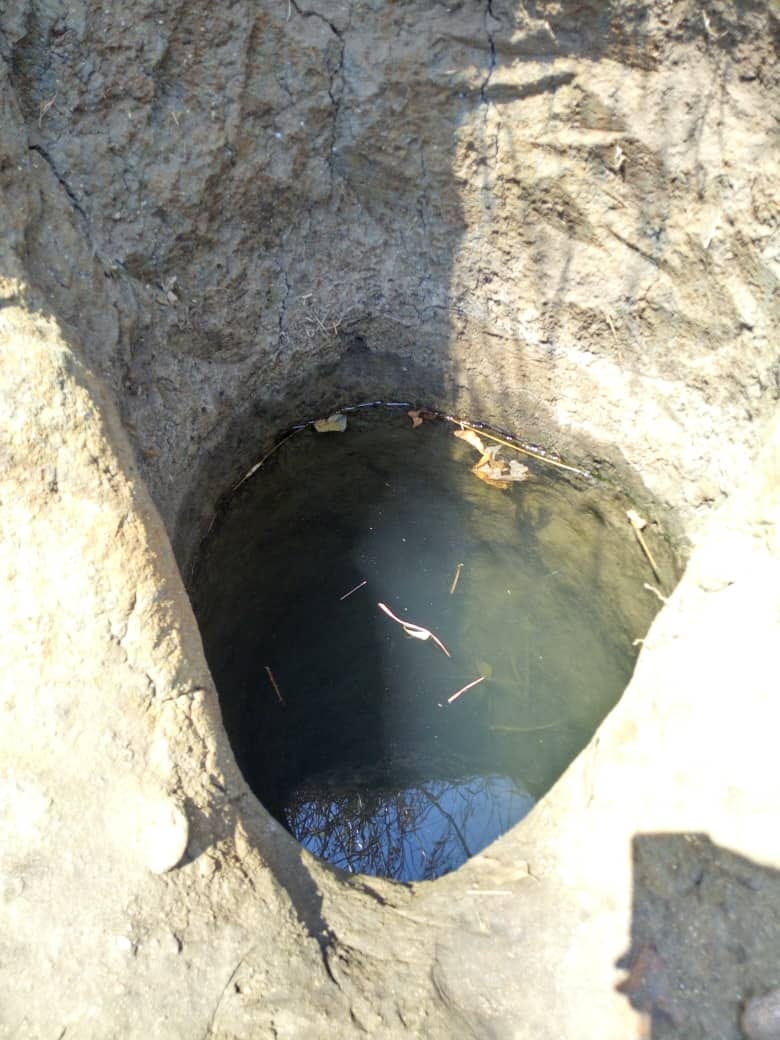
(A close-up of one of the water holes)
“I have lived in this area for the past 39 years now, and all I can say is that waterborne diseases have been hitting the community hard, year in, year out, with no sign of relief in sight,” Jackson Phiri, one of the community members, says.
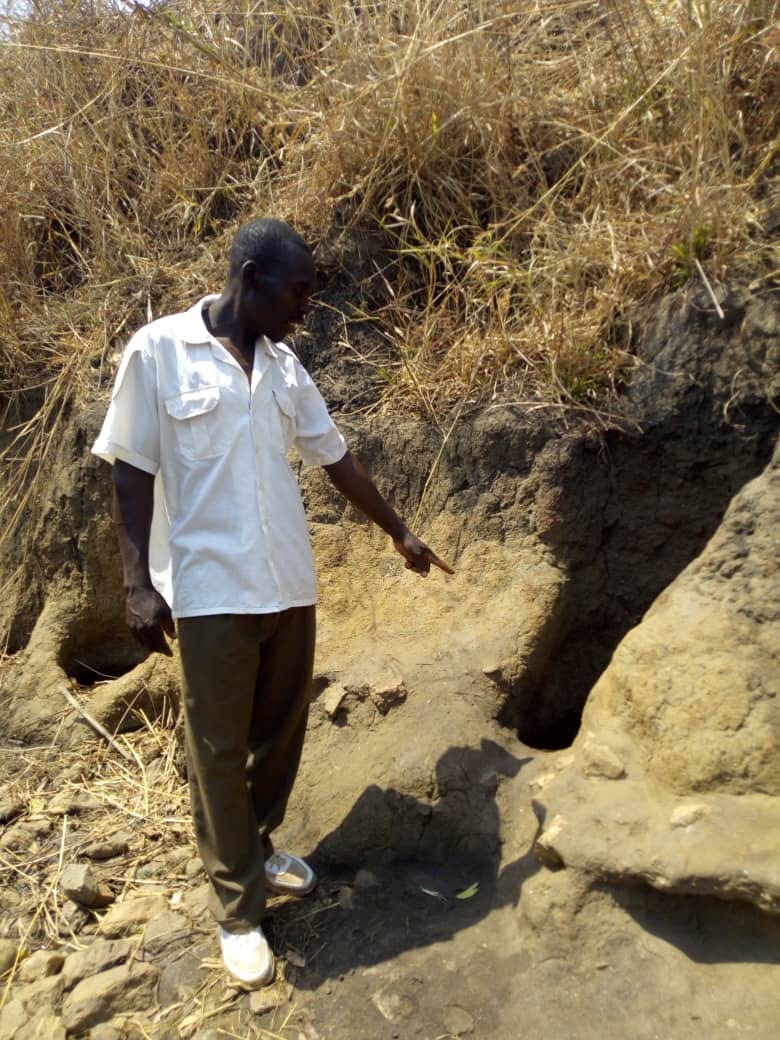
(“This is where we get our water from,” says Jackson.)
“All that authorities have been saying is ‘We’ve heard your water problems’, but never came back.”
Olipa Samuel, a mother of four, and a member of Kasangu community, also testifies to the challenges they have been facing all these years, “As women, we’ve been bearing the brunt, as we have been traveling long distances to access water, which, of course, was not safe, but had no choice.”
Willed Banda, speaking on behalf of group village Njewa of the area, says, “It’s disheartening that for the past 56 years we’ve been reduced to nothing, but ‘animals’, as we drink alongside animals from Mtofu River. This is despite that we’ve been queuing to vote leaders into office.”
Banda and the 1, 800-strong community members point their fingers at they what they call ‘not-so-keen-to-listen-authorities” for failing to provide them with protected drinking water all these years.
But it is not like they have been sitting idle.
Banda says at one time the community members decided to sink their own well after their pleas fell on “deaf ears” for a long time.
Joy filled the community, as women would then be drawing water from the well, without having to travel long distances to fetch water from the river, like in the past.
But, as fate would have it, one day the community had a grim awakening: a mentally-challenged member of the area dumped a dead dog into the well.
Olipa, visibly mesmerized by the experience, says that her saddest moment.
“That meant we had to continue braving the scorching sun to fetch water from holes dug out on Mtofu River banks.”
But it seems authorities in the district are fully aware some localities in the area have no access to clean water.
For example, Dowa District Water Development Officer, Timothy Banda, agrees that there are still several communities in Dowa that are still using unprotected water sources in all traditional authorities in the district.
“The situation is much worse in the eastern part of Dowa (where Kasangu Village is situated) due to rough topography, and the associated low water table and low yielding aquifers (poor hydrogeology) among other factors,” he says.
“But I currently don't have a concrete idea about why it has taken so long for this particular village to be prioritized by the district council and/or NGO partners with water supply interventions.”
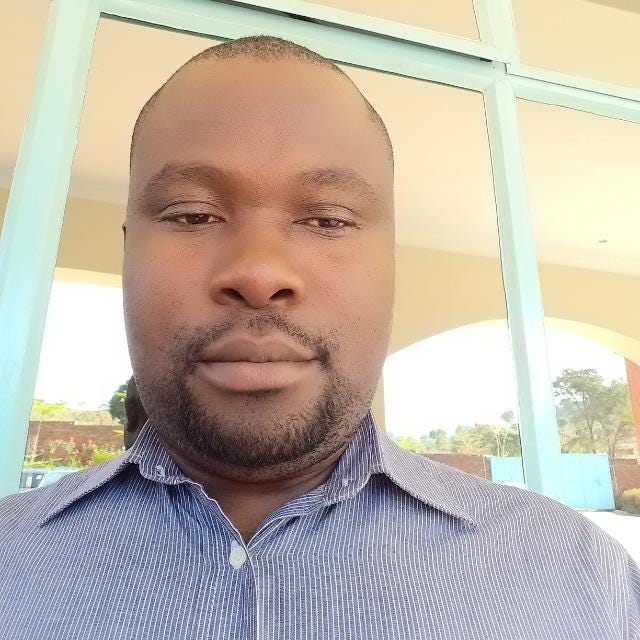
(Banda, Dowa District Water Development Officer)
The District Water Development Officer says, generally, some communities in the district are in dire need of potable water due to poor hydrogeological conditions resulting in dry holes during borehole drilling attempts, inaccessibility to heavy drilling machines, the salinity of groundwater resources, limited resources for water supply provision, among other reasons.
Luckily for Kasangu, a village with beautiful, serene, undulating hills and valleys, is one of the villages in which a local non-governmental organization, Rhema Institute for Development (RID), is carrying out its projects on food security, climate change, and WASH activities.
When the organization’s Executive Director Innocent Semu visited the area during one of such visits, he says could not hold back his sadness over the water challenges the community is facing.
“I know we generally say water is life, but not here: our baseline survey revealed that the water situation in the area is pathetic, and we, therefore, decided to intervene by providing the community with a borehole in February 2020,” Semu says.
“I was particularly touched when I saw a school-going boy fetching water in one of the holes dug out along the river banks: what it means is that the boy spends most of his precious time fetching water instead of studying.”
Semu says his organization, started in 2005, will continue working with communities in its catchment areas to further explore how to turn the water challenges around.
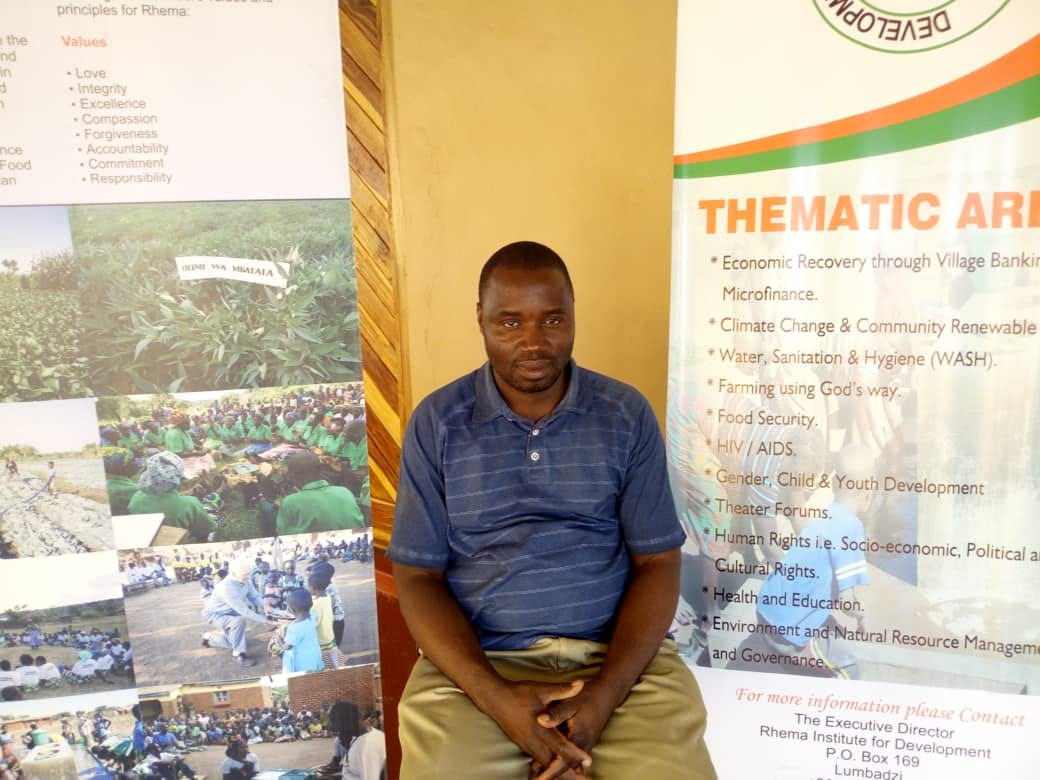
(Semu narrating his organization’s side of the story)
But this single borehole, that cost the NGO K4.5 million, is not enough more village in the area still can’t access clean water.
“I am very grateful to NGO partners for their complementary efforts which have resulted in increased access to potable water in many localities. We still have a backlog of work; hence, the need for even more concerted efforts to reach the so many communities that remain in dire need of safe water,” the District Water Development Officer says.
Meanwhile, people in Kasangu village and other surrounding communities are still holding on with bated breath to see the promises by authorities fulfilling their promises, as most of them continue to drink unprotected water, 56 years after independence.



